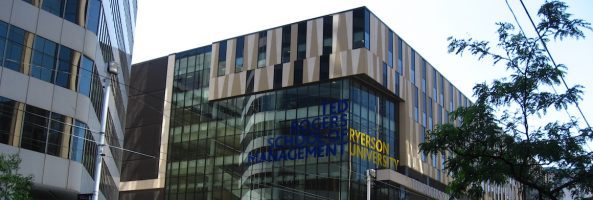Can Society Keep Up with Tech Entrepreneurs? – Boston News

Let’s explore some of the most interesting stories that have emerged from Boston business schools this week.
When Technology Gets Ahead of Society – Harvard Business Review
The Harvard Business Review recently dove into work by professor and Harvard‘s Lakshmi Mittal South Asia Institute Director Tarun Khanna that examines tech entrepreneurs’ “insouciance about the legal and social issues their innovations birth.”
Khanna explains that one pervasive issue we are collectively trying to negotiate is that necessary “regulatory, logistical, and social barriers” often struggle to keep pace with new and increasingly disruptive technologies.
“Although electric cars are subsidized by the federal government, Tesla has run afoul of state and local regulations because it bypasses conventional dealers to sell directly to consumers. Facebook is only now facing up to major regulatory concerns about its use of data, despite being massively successful with users and advertisers.”
Khanna argues that instead of shortening the “period between the advent of a technology and the emergence of the rules and new behaviors that allow society to embrace its possibilities,” Khanna encourages tech leaders to “take more responsibility for the whole ecosystem and bring regulators and consumers along with them, all of society stands to benefit.”
You can check out the full article here.
Machine Learning Will Redesign, Not Replace, Work – MIT Sloan Newsroom
MIT Sloan’s Erik Brynjolfsson, Carnegie Mellon’s Tom Mitchell, and Daniel Rock, a doctoral candidate and researcher at the MIT Initiative on the Digital Economy, published new research in the American Economic Association Papers and Proceedings, which finds that automation will most likely replace “specific tasks within jobs, rather than entire occupations themselves.”
Brynjolfsson writes, for instance, about deep neural networks that are adept at “tasks involving predictive analytics, speech and image recognition, and natural language processing, among others.”
The researchers write, “Automation technologies have historically been the key driver of increased industrial productivity. They have also disrupted employment and the wage structure systematically.”
“However, our analysis suggests that machine learning will affect very different parts of the workforce than earlier waves of automation. Machine learning technology can transform many jobs in the economy, but full automation will be less significant than the re-engineering of processes and the reorganization of tasks.”
You can read the full article here.
Northeastern Recognized For Excellence in Fostering Entrepreneurship – D’Amore-McKim Blog
At its recent Symposium for Innovation and Entrepreneurship, the Deshpande Foundation bestowed its 2018 Entrepreneurial University Award on Northeastern for the school’s “overall excellence in innovation and entrepreneurship.”
The Deshpande Symposium assembles “policy planners, academics, and practitioners from around the globe to discuss best practices for integrating entrepreneurship through university and college communities.”
This marks the second time in four years that Northeastern was honored at the Deshpande Symposium, having won the 2015 Excellence in Student Engagement in Entrepreneurship award.
Of the Entrepreneurial University Award, D’Amore-McKim Dean Raj Echambadi writes, “We pride ourselves in creating and training ‘Chief Entrepreneurial Officers’ who think differently and are capable of solving the grand challenges of business and society in a global economy.”
“This award is a testament to the strength of experiential learning through the integration of rigorous classroom education and real-world entrepreneurial engagement.”
The full article can be found here.
Ryerson University Entrepreneurship Recognized by Deshpande Symposium

At the recent Deshpande Symposium Awards, Ryerson University entrepreneurship excellence was recognized with the Entrepreneurial University Award. The award recognizes universities that integrate entrepreneurial education into their strategic plan, curriculum and student engagement.
